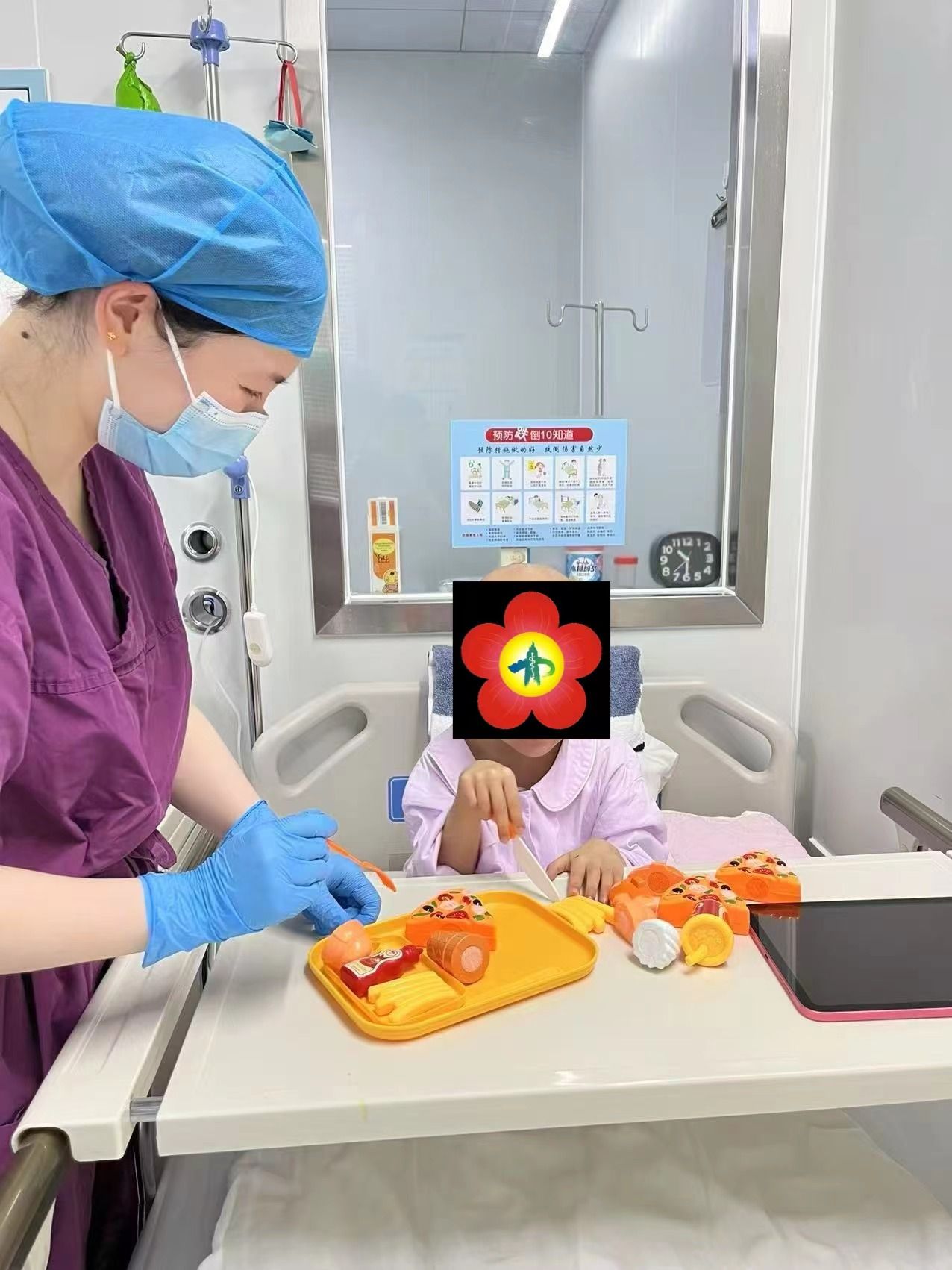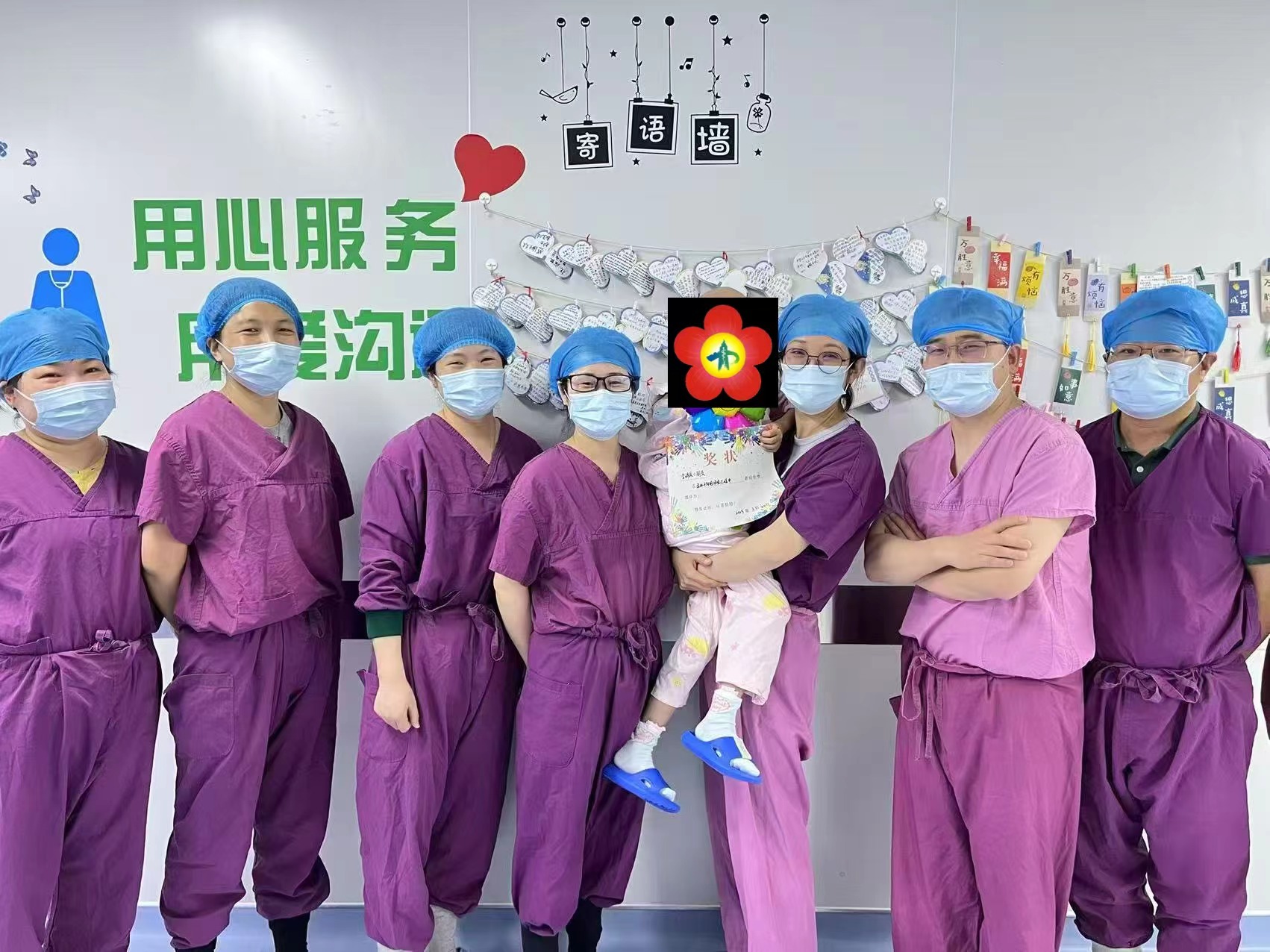On March 20, 2025, Department of Hematology of the First Affiliated Hospital (FAH) of Xi'an Jiaotong University (XJTU) announced good news that a child with high-risk neuroblastoma undergoing autologous peripheral blood hematopoietic stem cell transplantation was successfully discharged from FAH, starting a new life. According to literature review, this is the first case of autologous hematopoietic stem cell transplantation for a child with high-risk neuroblastoma in Shaanxi province, highlighting technological leap in the field of solid tumor transplantation in children. In August, 2024, the 4-year-old patient developed symptoms such as fatigue, loss of appetite and abdominal distension, and was diagnosed with high-risk neuroblastoma by a local hospital. After twice surgeries and 6 cycles of chemotherapy in several hospitals, the condition was still not effectively controlled. For better treatment, the patient was admitted to Hematopoietic Stem Cell Transplantation Center of FAH. Internationally, multiple treatments are available for pediatric neuroblastoma, including surgery, radiotherapy, chemotherapy, autologous hematopoietic stem cell transplantation and immunotherapy. Among them, autologous hematopoietic stem cell transplantation is the first-line consolidation regimen recommended by relevant guidelines. Prior to surgery, no relevant case has been reported in Shaanxi province. The hematopoietic stem cell transplantation team in FAH referred to domestic and international guidelines, carefully modified preoperative preparations and plans, formulated an individualized mobilization plan for the patient, and successfully harvested autologous peripheral blood hematopoietic stem cells.

On February 26, 2025, the child was transferred to the transplantation room to receive autologous hematopoietic stem cell transplantation. Postoperatively, the patient was explicitly accompanied and attended by 1-on-1 nursing care by the nursing team around the clock. The patient experienced fever, oral mucositis, diarrhea and other complications, which were rapidly recovered after effective treatment by medical staff. All parameters were stable and the patient was discharged from the transplantation room at 13 days post-transplantation.
To reduce the risk of recurrence and enhance clinical efficacy of transplantation, anti-GD-2 monoclonal antibody immune maintenance therapy will be delivered. In addition, CAR-T technology will be used as a rescue treatment after recurrence to guarantee the patient’s health.
